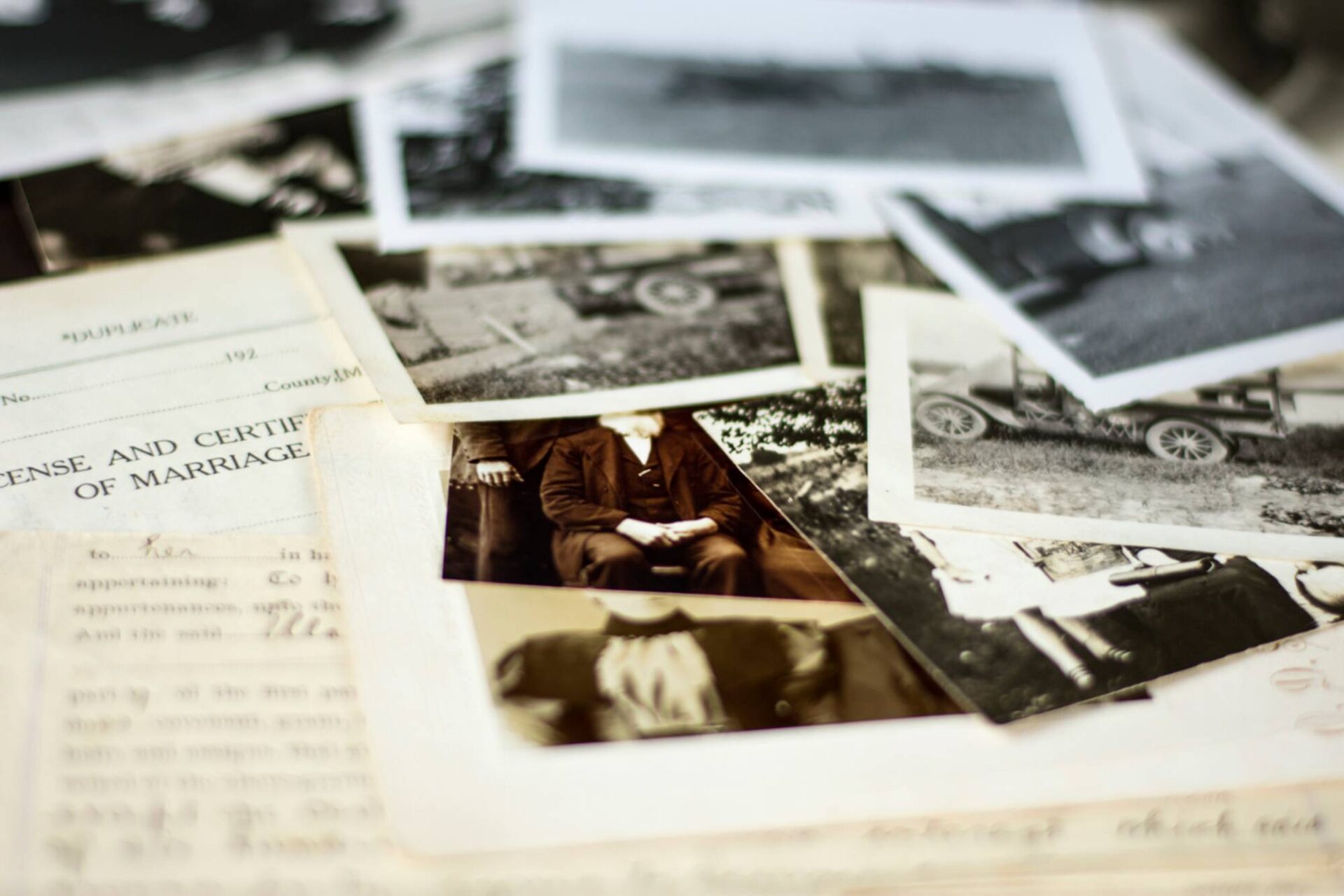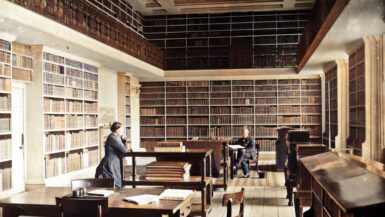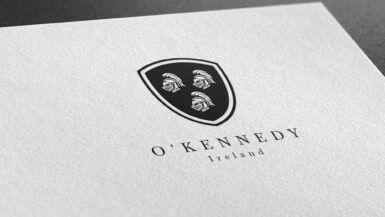Delving into the Roots of Irish Surnames
Irish surnames hold a unique place in the realm of genealogy, providing a rich tapestry of historical and cultural influences that have shaped the island’s identity. Unraveling the stories behind these surnames can offer valuable insights into one’s ancestry, as well as contribute to a deeper understanding of Ireland’s complex past. One of the most fascinating aspects of Irish surnames lies in the considerable impact of Viking and Norman invasions on the island’s naming conventions. In this article, we will explore the fascinating world of Irish surnames, tracing their evolution as they intermingled with Viking and Norman influences, and delving into the intricacies of Ireland’s genealogical landscape.
Understanding the origins of surnames is of paramount importance when it comes to genealogy. By dissecting the linguistic and historical roots of a surname, researchers can piece together the story of their ancestors, revealing key events, migrations, and cultural exchanges that have shaped their family history. This is particularly true for Irish surnames, which boast a diverse array of naming conventions influenced by the island’s storied past.
The Viking and Norman invasions of Ireland played a significant role in shaping the country’s linguistic and cultural landscape. As these foreign powers established settlements, intermarried with the local Gaelic population, and eventually assimilated into Irish society, their naming conventions left an indelible mark on Irish surnames. By examining the influence of Viking and Norman names on Irish surnames, we can better appreciate the complex web of interactions that have shaped the island’s genealogical heritage, allowing us to trace our own lineage and ancestry with greater accuracy and understanding.
Background on Viking and Norman Invasions in Ireland
The history of Ireland is marked by numerous invasions and settlements by foreign powers. Two of the most significant incursions that left lasting impacts on the island were the Viking invasions from the 9th to the 11th centuries and the Norman invasions in the 12th century. Understanding the historical context of these invasions provides essential insight into how they influenced the evolution of Irish surnames.
Viking Invasions (9th-11th centuries)
The Viking Age in Ireland began in the late 8th century when Norse raiders from modern-day Scandinavia started targeting monasteries and settlements along the Irish coast. By the 9th century, the Vikings had established permanent settlements, or longphorts, which eventually grew into some of Ireland’s most significant cities. Key Viking settlements included Dublin (established in 841 AD), Waterford (founded in 914 AD), Wexford (c. 888 AD), Cork (c. 915 AD), and Limerick (c. 922 AD). These settlements facilitated trade, cultural exchange, and intermarriage between the Vikings and the native Gaelic population.
Norman Invasions (12th century)
In 1169, a new wave of invaders arrived in Ireland: the Normans, a group of warriors of mixed Viking and Frankish origin who had conquered England a century earlier. Led by Richard de Clare, also known as Strongbow, and backed by King Henry II of England, the Normans initially arrived at the invitation of the ousted Irish king, Diarmait Mac Murchada, to help him reclaim his throne. However, their ambitions soon expanded, and they began to conquer and settle large areas of Ireland.
Key Norman settlements included Dublin, which they captured in 1171, as well as Waterford, Wexford, Kilkenny, and Limerick. The Normans introduced new agricultural practices, castle-building techniques, and administrative systems, profoundly shaping the social, economic, and political landscape of Ireland. Much like the Vikings, the Normans intermarried with the Gaelic population and gradually assimilated into Irish society, leaving a lasting impact on Irish surnames and culture.
Irish Surnames and the Vikings
As the Vikings settled in Ireland and assimilated into Gaelic society, their naming conventions left a lasting impact on Irish surnames. Over time, many Gaelic surnames were influenced by Viking names, reflecting the intermingling of the two cultures.
Gaelic surnames influenced by the Vikings:
A number of Irish surnames bear clear traces of Viking influence. For instance, the surname MacAuliffe derives from the Gaelic “Mac Amhlaoibh,” which means “son of Olaf” – Olaf being a common Norse name. Similarly, the surname MacManus has its roots in the Gaelic “Mac Maghnúis,” meaning “son of Magnus,” another prevalent Norse name. The surname Doyle, on the other hand, originates from the Gaelic “Ó Dubhghaill,” which translates to “descendant of the dark foreigner” – a reference to the dark-haired Vikings who settled in Ireland.
Viking surnames in Ireland:
In addition to Gaelic surnames with Viking influences, some purely Viking surnames also persisted in Ireland. These surnames often retained their original Norse form or underwent minor adaptations to fit the Gaelic language. Examples of such surnames include Sigurdsson, Thorgilsson, and Haraldsson, which all follow the traditional Norse practice of using the father’s name as a basis for the child’s surname, with the addition of “son” to indicate lineage.
Intermarriage and assimilation of Viking and Gaelic cultures: The blending of Viking and Gaelic names in Irish surnames is a testament to the intermarriage and assimilation that took place between the two cultures. As the Vikings established settlements in Ireland, they formed alliances and intermarried with the local Gaelic population. Over time, the Viking settlers adopted many aspects of Gaelic culture, including language, customs, and naming practices. This cultural assimilation led to the emergence of hybrid surnames that combined elements from both Viking and Gaelic traditions, further enriching the tapestry of Irish surnames.
Irish Surnames and the Normans
The Norman invasion of Ireland brought about a new wave of cultural influence, including the introduction of Norman surnames. These surnames, which were distinct from both Viking and Gaelic names, further diversified the landscape of Irish surnames and left a lasting impact on Irish naming practices.
Norman surnames introduced to Ireland:
As the Normans settled in Ireland, they introduced their own surnames, many of which can still be found in the country today. Some notable examples of Norman surnames in Ireland include Burke (derived from de Burgh), FitzGerald, Butler (from le Boteler), DeLacy, and De Courcy. These surnames often reflect the Norman family’s origins or their titles and occupations.
The use of ‘Fitz’ prefix in Norman surnames:
One of the most recognizable features of Norman surnames in Ireland is the use of the ‘Fitz’ prefix, which is derived from the Old French word ‘fils,’ meaning ‘son of.’ This prefix was used in a similar way to the Gaelic ‘Mac’ or the Norse ‘son,’ indicating a patronymic relationship. Examples of Norman surnames with the ‘Fitz’ prefix include FitzGerald (son of Gerald) and FitzHenry (son of Henry).
Norman influence on Irish naming practices:
The arrival of the Normans in Ireland had a profound impact on Irish naming practices. One notable influence was the introduction of the ‘de’ prefix in surnames, which was used to denote a person’s geographical origin or their association with a particular place. Examples of this prefix in Irish surnames include de Burgh (of the borough), de Barry (of Barry), and de Roche (of the rock).
Influence on the adoption of Gaelic surnames by Norman settlers:
As the Normans assimilated into Irish society, they often adopted Gaelic surnames, either by translating their original Norman surname into Gaelic or by taking on the name of their Gaelic in-laws or allies. This process further enriched the diversity of Irish surnames and contributed to the unique blend of cultural influences that characterizes the island’s genealogical heritage.
The Evolution of Irish Surnames
Over the centuries, Irish surnames have undergone various transformations, influenced by political, social, and cultural factors. These changes have led to the Anglicization of many names, the persistence of Gaelic surnames, and the emergence of hybrid or adapted surnames that reflect the island’s rich history.
Anglicization of Irish surnames:
From the 16th century onwards, English rule in Ireland led to the widespread Anglicization of Irish surnames, a process that saw many traditional Gaelic names being translated or adapted to fit English spelling conventions. Examples of this process include the surname O’Neill, which was often shortened to Neill, and MacCarthy, which lost its original Gaelic spelling of “Mac Cárthaigh” to become McCarthy. This Anglicization was further accelerated during the 19th century, when many Irish emigrants anglicized their names to better assimilate in English-speaking countries such as the United States, Canada, and Australia.
Persistence of Gaelic surnames:
Despite the pressures of Anglicization, many Gaelic surnames have persisted in their original form or with minor alterations to accommodate English spelling. Examples of these enduring Gaelic surnames include O’Connor (Ó Conchobhair), O’Sullivan (Ó Súilleabháin), and O’Donoghue (Ó Donnchú). The resilience of these names highlights the strength of Gaelic cultural identity and serves as a testament to Ireland’s rich history and heritage.
Hybrids and adaptations in surnames:
Another fascinating aspect of Irish surnames is the emergence of hybrid or adapted names that reflect the complex interplay of cultures on the island. These surnames often combine elements from Gaelic, Viking, Norman, and English naming traditions, creating unique and distinctive names that attest to Ireland’s diverse genealogical landscape. For example, the surname MacMurrough Kavanagh (MacMurchada Caomhanach) combines the Gaelic patronymic “Mac” (son of) with the Norse name “Murchada” and the Gaelic byname “Caomhanach” (gentle or kind). Similarly, the name MacGilpatrick FitzWilliam (Mac Giolla Phádraig Mac Uilliam) blends the Gaelic “Mac Giolla Phádraig” (son of the servant of Patrick) with the Norman ‘Fitz’ prefix and the English name “William.”
Tracing Your Irish Ancestry
Given the rich tapestry of influences that have shaped Irish surnames, tracing one’s Irish ancestry can be both a fascinating and challenging journey. Researchers often face obstacles such as the loss of records, multiple spellings of surnames, and extensive migration. However, with determination, patience, and the right resources, it is possible to uncover valuable information about your Irish heritage.
Challenges in tracing Irish genealogy: Some of the key challenges faced by genealogists researching their Irish roots include the loss of records due to historical events such as the destruction of the Public Record Office in Dublin during the Irish Civil War, the multiple spellings and variations of surnames caused by Anglicization and regional dialects, and the widespread migration of Irish people to other countries, particularly during the Great Famine of the 19th century.
Tips for researching Irish surnames: Despite these challenges, there are several strategies and resources that can help you uncover your Irish ancestry:
- Start with family records and oral history: Begin your research by gathering any family documents, photographs, and heirlooms that may provide clues about your Irish ancestors. Talk to older relatives who may have stories or knowledge about your family’s history, and record their memories for future reference.
- Consult online resources: Numerous online databases and resources can aid your search for Irish ancestors. Examples include Irish census records, Griffith’s Valuation (a comprehensive land survey conducted in the mid-19th century), and church records of baptisms, marriages, and burials. Websites such as the National Archives of Ireland, the Irish Family History Foundation, and Findmypast.ie can provide access to these valuable sources.
- Visit local archives and libraries in Ireland: If you have the opportunity to travel to Ireland, visiting local archives, libraries, and historical societies can offer access to a wealth of information not available online. Be prepared to spend time browsing through records, newspapers, and local histories to piece together your family’s story.
- Connect with other genealogy enthusiasts: Joining genealogy forums, social media groups, or local organizations dedicated to Irish family history can help you connect with others who share your passion for tracing your roots. These connections can provide invaluable advice, tips, and resources, as well as offer a supportive community to share your discoveries and challenges.
By following these tips and persevering in your research, you can gradually unravel the fascinating story of your Irish ancestors and deepen your connection to Ireland’s rich and diverse heritage.
The Lasting Impact of Viking and Norman Names on Irish Surnames
The influence of Viking and Norman names on Irish surnames has left an indelible mark on the island’s genealogical landscape. These ancient cultural exchanges continue to shape Irish identity and contribute to the richness of Ireland’s heritage.
The continued presence of Viking and Norman surnames in Ireland today:
Even centuries after the Viking and Norman invasions, their impact on Irish surnames remains evident. Names like MacAuliffe, MacManus, and Doyle, which have clear Viking roots, as well as Norman-derived names like Burke, FitzGerald, and Butler, can still be found across Ireland and among the Irish diaspora. The endurance of these surnames is a testament to the lasting influence of these historical interactions on the Irish people and their culture.
The significance of understanding the origin of surnames in tracing family history:
Unraveling the origins of your Irish surname can provide valuable insights into your family’s history and the broader cultural context of your ancestors’ lives. Knowing whether your surname has Viking, Norman, or Gaelic roots can help guide your genealogical research and provide clues about the geographical areas, historical events, and cultural influences that have shaped your family’s story.
The unique blend of cultures in Irish surnames as a testament to Ireland’s rich history:
The intermingling of Viking, Norman, and Gaelic naming practices has created a uniquely diverse array of Irish surnames, reflecting the island’s complex and rich history. The fusion of these different cultural influences in Irish surnames serves as a constant reminder of Ireland’s dynamic past and the resilience of its people in the face of invasion, assimilation, and change.
By studying the origins and evolution of Irish surnames, we can gain a deeper appreciation for the island’s fascinating history, its diverse cultural influences, and the enduring legacy of the Viking and Norman settlers who have left their mark on the Irish people and their heritage.






Leave a reply